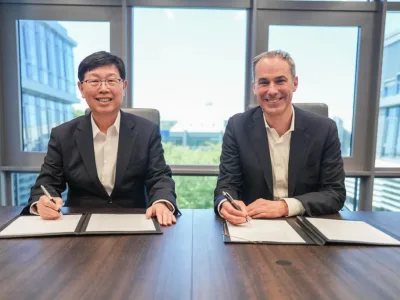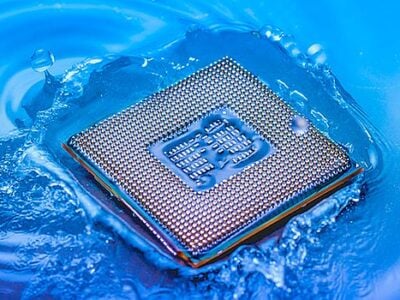
EU Foresight report highlights semiconductors, quantum and space
To be technologically and digitally sovereign, the EU will need to support the development and uptake of human-centred knowledge and technologies, says the Foresight Report published today.
As well as recommending its own AI and big data capabilities, the report highlights the importance of quantum technologies, semiconductors, standards and skills.
The report is a key element in establishing strategic policies for the region and support for research and development and industry. Some areas are already underway, such as the Gaia-X data project, quantum projects and the €13bn integrated space strategy.
Technology development
The EU accounts for almost 20 percent of the world’s total research and development, publications and patenting activity but lags behind global competitors in private investment into research and other indicators. The EU has a performance gap with Australia, Canada, Japan, South Korea and the United States.
A number of breakthrough innovations can be key for the twin transitions and competitiveness. The EU’s capabilities in artificial intelligence, big data and robotics are similar to Japan’s, but it needs to catch up with leaders: the USA and China. In key quantum technologies, the USA, Japan and China are currently in the lead. By 2025, the EU will have its first computer with quantum acceleration and if matched with investment, it could be at the cutting edge of quantum capabilities by 203015 .
Other promising technologies include microelectronics, new materials for bio-degradable electronics, flexible and printed electronics, and 2D material based technologies such as graphene, says the report.
However, new technologies and hyperconnectivity do not come without challenges. In the future, 50% of current jobs globally could be automated, with significant differences across countries and sectors. New jobs will appear, but will require new skills. Digital transition can also increase e-waste, and drive demands for energy or use of rare resources.
Data sovereignty
The EU’s digital sovereignty will depend on capacity to store, extract and process data, while satisfying the requirements of trust, security and fundamental rights. The digital economy, especially data processing, high-performance cloud and edge computing, may have a positive effect on the EU’s economy and competitiveness.
EU companies and public administration authorities will increasingly adopt user and entity data analytics, Internet of Things, and artificial intelligence and the EU has introduced significant investment objectives and funding instruments to promote the development and deployment of next-generation and disruptive cloud and edge technologies.
With the increasing use of data for industrial and business applications, a strategic approach to the development and deployment of industrial Internet of Things systems, 5G/6G, and edge computing with the ability to manage and quickly analyse big data will be crucial for achieving the objectives of the twin transitions.
Related articles
- Europe’s Gaia-X takes on Amazon and Microsoft clouds
- HPE backs Gaia-X for the European cloud
- EU launches its €13bn integrated space programme
- Reusable factory in space gets seed funding
Semiconductors
Faced with the exponential increase in demand for semiconductors, the EU needs to position itself more firmly in the development and production of next-generation technologies. Access to semiconductors could be compromised by limited production capacity, and shortages can heavily affect business continuity of different industries.
The EU has notable strengths and is home to a crucial supplier of manufacturing equipment to all leading manufacturers, but it is lagging behind in the production of next-generation processors and advanced semiconductors. Taiwan, China, South Korea and the USA are investing heavily in boosting their domestic production of semiconductors and chipmakers in Taiwan, South Korea, Japan and the USA have announced massive private investments in new production capacities.
“To stay in the race, the EU needs to invest in capabilities for the next generation of processors and semiconductor chips. This requires a tightened screening of foreign take-over of the European production capacities, investments in research and development, and setting favourable conditions across the value chain,” says the report.
Next: Materials, skills, standards, space
Materials
Critical raw materials are essential for the EU’s twin transitions. The expansion of green technologies, such as those underpinning wind and solar power, domestic energy storage, and the production of batteries for electric vehicles will drive up demand for raw materials such as cobalt, lithium, graphite, manganese and nickel in the next two decades.
However, the challenge goes beyond green technologies. For instance, the sector for small drones, for which China delivers more than a third of the raw materials, is expected to grow exponentially between now and the 2030s, with high potential for the civil and commercial sub-sectors, and sharply increasing demand for gallium, indium, scandium and titanium, among others. The defence industry relies heavily on critical raw materials, for example almost half of the materials needed in aircraft production come from non-EU countries. The increase in demand for critical raw materials is expected to coincide with an upturn in the major suppliers’ readiness to impose export restrictions
Industry’s efforts to secure access to critical raw materials and reduce its demand through efficiency, prolongation of product lifetimes and circular economy through recycling require a clear long-term strategy. Finally, novel ways of sourcing, such as seabed and space mining need to be explored in accordance with internationally agreed principles and commitments.
Standard setting
The EU is in competition for ‘first mover’ advantage in standard-setting. This is particularly relevant in emerging technologies (and related products and services), such as artificial intelligence, blockchain, quantum, cyber security, sensitive and specialised data (e.g. in the fields of health and space), digital currencies and chemicals. Other priority fields include green technologies such as hydrogen, energy storage, offshore wind and sustainable transport. Our trading partners are taking more assertive actions in terms of standard-setting, e.g. China is working on a ‘China standards 2035’ plan to identify next-generation technologies that it could impose on the 140 countries participating in the Belt and Road Initiative.
Skills
STEAM competencies, digital skills and literacy, together with sector-specific expertise to achieve the green transition (e.g. in renewable energy, circular economy, new green technologies or nature[1]based solutions) will be indispensable for successful labour market and social integration. To ensure access to the skills of tomorrow, the EU’s education and training systems will need to remain on the global cutting edge. The EU should also incentivise more of its talents (at universities, in research institutions or businesses) to stay in Europe63 and mitigate brain drain between Member States and regions.
Space
It is essential that the EU supports autonomous, reliable and cost-effective access to space. Space technologies, together with artificial intelligence, are strategic means of countering threats and anticipating future risks, such as hybrid threats including cyber espionage. They are important for the future of the EU’s communications, Earth observation, manufacturing, security, and an essential ingredient of the transitions. They help monitor climate change, transportation, security and defence and are key to the functioning of critical infrastructure and technology.
The space sector contributes EUR 46-54 billion to the EU economy and is expected to grow globally to EUR 1 trillion by 2040. The EU is currently a world leader in some areas (e.g. satellite services), while other areas (e.g. space launchers and space missions) are dominated by the USA, China and Russia, and increasingly by private actors. Other space-faring nations have a very strong domestic market – effectively an anchor customer for a considerable launch volume (including launches for defence and national security). Lacking this, EU launcher companies are at a competitive disadvantage in the global market, and depend on the commercial market to a much higher degree than competitors from China, Russia, the USA, or Japan.
The EU should acknowledge the EU space infrastructure as strategic and maximise the benefits of new technologies, such as advanced launchers, nano-satellites, robotics, large constellations, on-orbit operations or quantum-based applications (e.g. for secure communications and Earth observation for secure connectivity). It should also prepare itself for new space activities and promote on-orbit services or space data centres, building on its expertise in areas where it has a competitive industrial capacity, such as telecommunications and Earth observation
The 2021 Foresight report is at ec.europa.eu/info/sites/default/files/foresight_report_com750_en.pdf
Other related articles
- EU starts quantum network rollout as Ireland signs deal
- European startup ships first commercial quantum processor
- Europe launches Quantum Industry Consortium
- Bosch boss calls for quantum commitment
Other articles on eeNews Europe
- Renesas completes €4.8bn acquisition of Dialog Semiconductor
- First stacked SPAD ToF depth sensor for automotive LiDAR
- Wittenstein sets up €5m foundation
- SDK turns iPhones into head and eye tracker
- Philips completes sale of domestic appliances business
- Nexperia defends Newport deal
- TSMC price rise to drive global equipment costs
- Marvell founders back data centre RISC-V chiplet startup
 If you enjoyed this article, you will like the following ones: don't miss them by subscribing to :
eeNews on Google News
If you enjoyed this article, you will like the following ones: don't miss them by subscribing to :
eeNews on Google News



